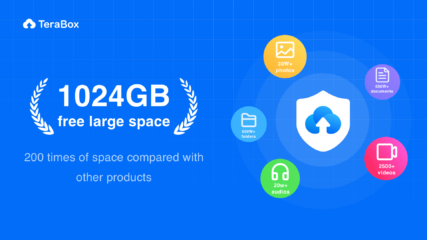Imagine you're a data scientist tasked with analyzing massive datasets but are tired of dealing with cumbersome server setups. Enter DuckDB, your new best friend in the world of data analysis. This robust, open-source OLAP database changes the game, offering blazingly fast in-process analysis straight from your application.
Understanding DuckDB's Core Features
Have you ever wished for a robust database that doesn't require the hassle of server setup? Enter DuckDB, an open-source OLAP (Online Analytical Processing) database designed for fast and efficient data analysis. It's like having a Swiss Army knife for data at your fingertips, without needing a separate server. DuckDB suits data scientists, analysts, and application developers who must process large datasets locally.
In-Process Database: No Server? No Problem!
One of the standout features of DuckDB is its in-process database capability. What does this mean for you? Simply put, DuckDB runs directly within your application. This eliminates the need for a separate server setup. Imagine the convenience of analyzing data right from your laptop without the overhead of managing a server. It's like having a personal data assistant always ready to work.
Why is this important? Well, it simplifies deployment and reduces costs. No more worrying about server maintenance or cloud costs. DuckDB is all about making your life easier, allowing you to focus on what really matters: analyzing data.
Comprehensive SQL Support: Complex Queries Made Simple
DuckDB offers comprehensive SQL support. Whether you are dealing with simple queries or complex data manipulations, DuckDB has covered you. It supports complex queries, joins, and window functions. This means you can perform intricate data operations without breaking a sweat.
Think of SQL as the language of data. With DuckDB, you can speak this language fluently, thanks to its robust SQL capabilities. Whether you're a seasoned data analyst or a beginner, DuckDB makes it easy to interact with your data.
Optimized for Modern CPU Architectures: Speed at Your Fingertips
Performance is key when it comes to data analysis. DuckDB uses a columnar-vectorized query engine optimized for modern CPU architectures. What does this mean for you? Faster query execution and efficient data processing.
Imagine driving a sports car on an open highway. That's what using DuckDB feels like. It's designed to take full advantage of your hardware, ensuring that your data analysis tasks are completed swiftly and efficiently.
Seamless Integration with Popular Programming Languages
DuckDB integrates seamlessly with popular programming languages like Python and R, making it an excellent choice for data scientists and developers who are already familiar with these languages. You can easily incorporate DuckDB into your existing workflows, enhancing your data analysis capabilities without learning a new tool from scratch.
Portability and Accessibility: Data Analysis for Everyone
DuckDB is compatible with major operating systems and integrates with multiple programming languages. This portability ensures you can use DuckDB wherever you are, on whatever platform you prefer. Plus, being free and open-source, DuckDB is accessible to individuals and organizations alike.
As Jane Doe, a data scientist, aptly puts it,
"DuckDB bridges the gap between data scientists and analysts, offering robust tools without the server overhead."
This quote captures the essence of DuckDB's mission: to empower users with powerful data analysis tools without the complexities of server management.
Why Choose DuckDB?
In-process database: No server setup is required.
Comprehensive SQL support: Handle complex queries with ease.
Optimized for modern CPUs: Fast and efficient data processing.
Seamless integration: Works with Python, R, and more.
Portability: It can be used on any central operating system.
Free and open-source: Accessible to everyone.
In conclusion, DuckDB offers a unique combination of features that make it an ideal choice for anyone looking to perform local data analysis without the hassle of server management. It's like having a robust data engine right at your fingertips, ready to tackle any analytical challenge you throw its way.
Seamless Integration with Popular Programming Languages
Have you ever wondered how to make your data processing tasks more efficient? If you're a developer or data analyst, you might be familiar with the struggle of integrating databases with your favorite programming languages. Enter DuckDB, a game-changer in the world of data analytics. This open-source OLAP database is designed to work smoothly with popular languages like Python and R. But how does it really enhance your workflow? Let's dive in.
Why Choose DuckDB?
DuckDB is not just another database. It's a powerful tool that fits right into your existing workflow. Whether using Python for machine learning or R for statistical analysis, DuckDB offers seamless integration. This means you can run SQL queries directly within your code without the hassle of setting up a separate server. Sounds convenient, right?
Works Smoothly with Python and R
Imagine you're working on a data science project. You must analyze a large dataset, but setting up a traditional database feels like overkill. With DuckDB, you can handle this directly in Python or R. It acts as an in-process database, running within your application and eliminating the need for complex server configurations.
Python: DuckDB effortlessly integrates with Python. You can perform complex queries and data manipulations without leaving your Python environment.
R: For those who prefer R, DuckDB offers similar seamless integration. You can execute SQL queries and handle large datasets with ease.
John Smith, a software engineer, puts it best:
"Integrating DuckDB with Python has transformed how we handle data, simplifying complex processes without sacrificing speed."
Facilitates Easy Data Manipulation Tasks
Data manipulation is a crucial part of any data-driven project. DuckDB makes this process straightforward. You can perform operations like filtering, aggregating, and joining datasets directly within your code. This is particularly useful for data scientists who must preprocess data before feeding it into machine learning models.
Consider this: You're working with a massive dataset and must extract specific insights. With DuckDB, you can write SQL queries to manipulate data quickly and efficiently. No need to export data to another tool or language. Everything happens in one place, saving you time and effort.
Enhances Productivity for Developers
Time is money, especially in the tech world. DuckDB enhances productivity by reducing the overhead associated with traditional databases. You don't have to worry about server maintenance or configuration. Instead, you can focus on what matters most: analyzing data and deriving insights.
Here's how DuckDB boosts productivity:
Speed: Its columnar-vectorized query engine is optimized for modern CPUs, ensuring fast query execution.
Portability: Compatible with major operating systems, DuckDB can be used across different environments without compatibility issues.
Flexibility: Being open-source allows for customization and integration with various tools and languages.
Integrating DuckDB into your workflow allows you to streamline data processing tasks and focus on delivering results. This tool adapts to your needs, whether you're a solo developer or part of a larger team.
Conclusion
DuckDB's seamless integration with Python and R makes it an invaluable asset for anyone working with data. It simplifies complex tasks, enhances productivity, and offers high performance for analytical workloads. Whether you're a seasoned developer or starting out, DuckDB is worth exploring. So, why not see how it can transform your data processing tasks?
Advantages of Using an Open-Source Database
Have you ever wondered why open-source databases are gaining popularity? It's not just a trend; it's a revolution in managing and analyzing data. Let's explore the advantages of open-source databases.
1. Cost-Effective Accessibility
First and foremost, open-source databases are available at no cost. Yes, you read that right. They're free! This makes them accessible to everyone, from individual developers to large organizations. No need to worry about hefty licensing fees eating into your budget.
Take DuckDB, for example. It's a robust open-source database designed for fast, efficient data analysis. Whether you're a data scientist, analyst, or developer, DuckDB offers a cost-effective solution for processing large datasets locally. No separate server is required!
2. Encourages Collaboration and Transparency
Open-source databases thrive on collaboration. They bring together a community of developers and users who contribute to the project's growth and improvement. This collaborative environment fosters innovation and ensures that the database remains updated with technological advancements.
"The open-source nature of DuckDB fosters innovation and community-driven improvements." - Emily Clarke, Open Source Advocate
Another key advantage is transparency. With open-source databases, you have access to the source code. You can see exactly how the database works, which builds trust and confidence in the software. There are no hidden surprises!
3. Adaptability to Various Project Needs
Every project is unique, and open-source databases are designed to be adaptable. They offer flexibility to customize and tailor the database to meet specific project requirements. Whether you're working on a small-scale application or a large enterprise solution, open-source databases can be molded to fit your needs.
DuckDB, for instance, integrates seamlessly with popular programming languages like Python and R. It offers comprehensive SQL support, allowing you to perform complex queries and data analysis efficiently. Plus, it's compatible with major operating systems, so you can use it on your preferred platform.
4. High Performance and Portability
Performance is crucial when dealing with large datasets. Open-source databases like DuckDB are optimized for high performance. They use advanced query engines and modern CPU architectures for fast and efficient data processing.
Another significant advantage is portability. Open-source databases can run directly within applications, eliminating the need for server-side setup. This makes them easy to deploy and use across different environments.
Conclusion
In conclusion, open-source databases offer many advantages that make them attractive for data management and analysis. They're cost-effective, encourage collaboration and transparency, are adaptable to various project needs, and deliver high performance and portability. Whether you're a seasoned developer or just starting out, open-source databases like DuckDB provide the tools you need to succeed.
So, why not give them a try? Explore the possibilities and see how they can transform your data management processes. Remember, open-source is all about sharing knowledge and driving innovation. Be a part of it!



.png)